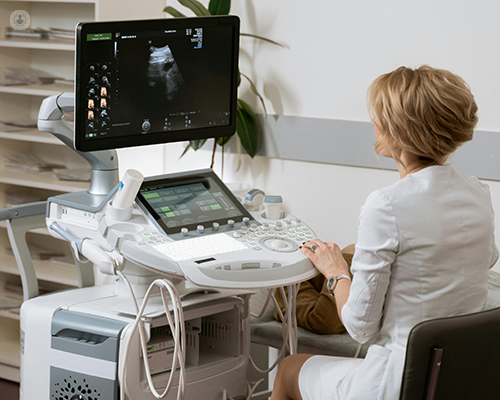The role of gynaecological ultrasounds in fertility: When to schedule a consultation
Written in association with:Gynaecological ultrasounds are specialised imaging tests that allow specialists to view the reproductive system in detail. If you are facing fertility challenges, understanding the purpose and timing of gynaecological ultrasounds is key to making informed decisions about your care.
Miss Linda Farahani, distinguished consultant gynaecologist and specialist in reproductive medicine, provides an expert insight into the role of gynaecological ultrasounds in fertility care.

What is the role of gynaecological ultrasounds in fertility care?
Gynaecological ultrasound are essential diagnostic tools in fertility care. The scans provide real-time images that reveal the size, shape, and condition of the reproductive organs, including the uterus, ovaries, and fallopian tubes. This helps your specialist identify potential conditions or abnormalities that could affect conception, such as polycystic ovary syndrome (PCOS), uterine fibroids, polyps, cysts, or endometriosis.
In addition to diagnosing conditions, gynaecological ultrasounds are also used to monitor fertility treatments. The scans allow your specialist to track the growth of ovarian follicles during, for instance, ovulation induction or in vitro fertilisation (IVF) and confirm whether ovulation has occurred. Similarly, the scans allow your specialist to evaluate the thickness and texture of the uterine lining and determine whether it is ready for implantation.
Are there specific times in my menstrual cycle when a gynaecological ultrasound is most effective?
The timing of your gynaecological ultrasound is closely tied to your menstrual cycle. Each phase of the cycle provides different insights into reproductive health.
- Early follicular phase (days 1-5): Gynaecological ultrasounds are used to evaluate ovarian reserves by counting antral follicles, which contain eggs.
- Ovulatory phase (mid-cycle): Gynaecological ultrasounds are used to monitor follicle development. They identify the dominant follicle, which is more likely to release an egg, and confirm ovulation.
- Luteal phase (post-ovulation): Gynaecological ultrasounds are used to confirm that ovulation has occurred and evaluate the uterine lining by helping your specialist determine whether it is receptive to support an embryo.
What are the different types of gynaecological ultrasounds used in fertility assessments?
There are two primary types of gynaecological ultrasounds used in fertility care: transvaginal and transabdominal. Each serves a distinct purpose and is performed differently.
Transvaginal ultrasound
A transvaginal ultrasound is the most common type of ultrasound used in fertility assessments due to its clarity in assessing the pelvic organs. During the scan, a thin probe (covered with a protective sheath and lubricated with gel) is gently inserted into the vagina, providing clearer and more detailed images of the uterus, ovaries, and surrounding tissues.
Transvaginal ultrasounds are indispensable for monitoring follicular development, assessing uterine abnormalities, and guiding treatments like egg retrieval in IVF. In some cases, the procedure might cause slight discomfort, but it’s generally well-tolerated.
Transabdominal ultrasound
A transabdominal scan may be used in a number of different scenarios, such as patients who would prefer to avoid an internal scan, patients with large fibroids, or the later stages of pregnancy (after 8 weeks). During the scan, a small handheld device (called a transducer) is placed on the surface of the lower abdomen. A gel is applied to the skin to improve the transmission of sound waves, which create detailed images of the pelvic organs.
Transabdominal ultrasounds are useful for assessing larger abnormalities, such as fibroids or ovarian cysts. You are typically required to have a full bladder during the scan, as it helps improve clarity by pushing the bowel out of the way.
When to schedule a consultation
If you are experiencing difficulties conceiving, or have any other concerns about your reproductive health, consider scheduling a gynaecological ultrasound early in your fertility journey. This is particularly important if you have irregular or absent menstrual cycles, unexplained pelvic pain, or a history of miscarriage.
Additionally, if you are preparing for a fertility treatment, consult your specialist to determine the optimal timing for a gynaecological ultrasound. With proper scheduling, gynaecological ultrasounds can provide invaluable insights into reproductive health and pave the way for a successful fertility treatment.
To book an appointment with Miss Linda Farahani, head on over to her Top Doctors profile today.


